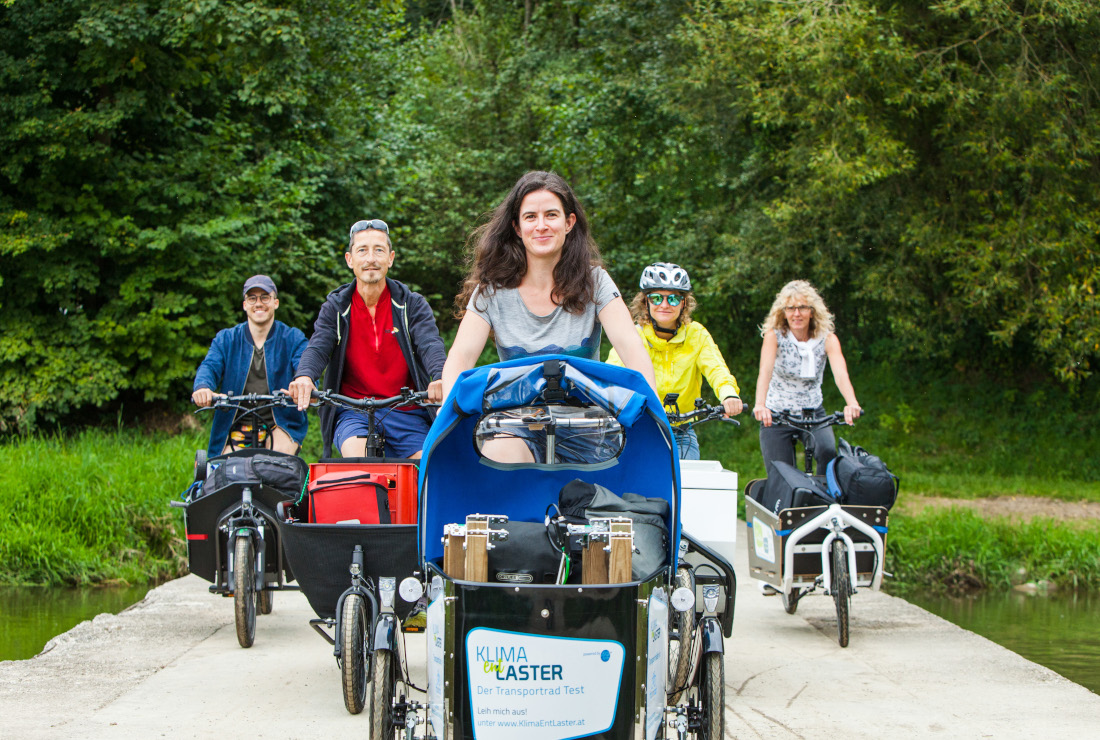
21 Mar Transport-Sharing for communities a guideline
How can a municipality set up a transport bike sharing service? What steps are necessary for this? You will find answers to these and other questions in the KlimaEntLaster guide “Transport bike sharing for my municipality”. The guide clearly summarises three years of practical experience of the KlimaEntLaster pilot municipalities Amstetten, Freistadt and Mattersburg. The project has shown that car journeys can be replaced by the transport bike. The inhabitants of the pilot municipalities have covered more than 8000 km with the KlimaEntLaster bicycles.
The guide and other important results of the project as well as information on how to set up a transport bike sharing service can be found here.


